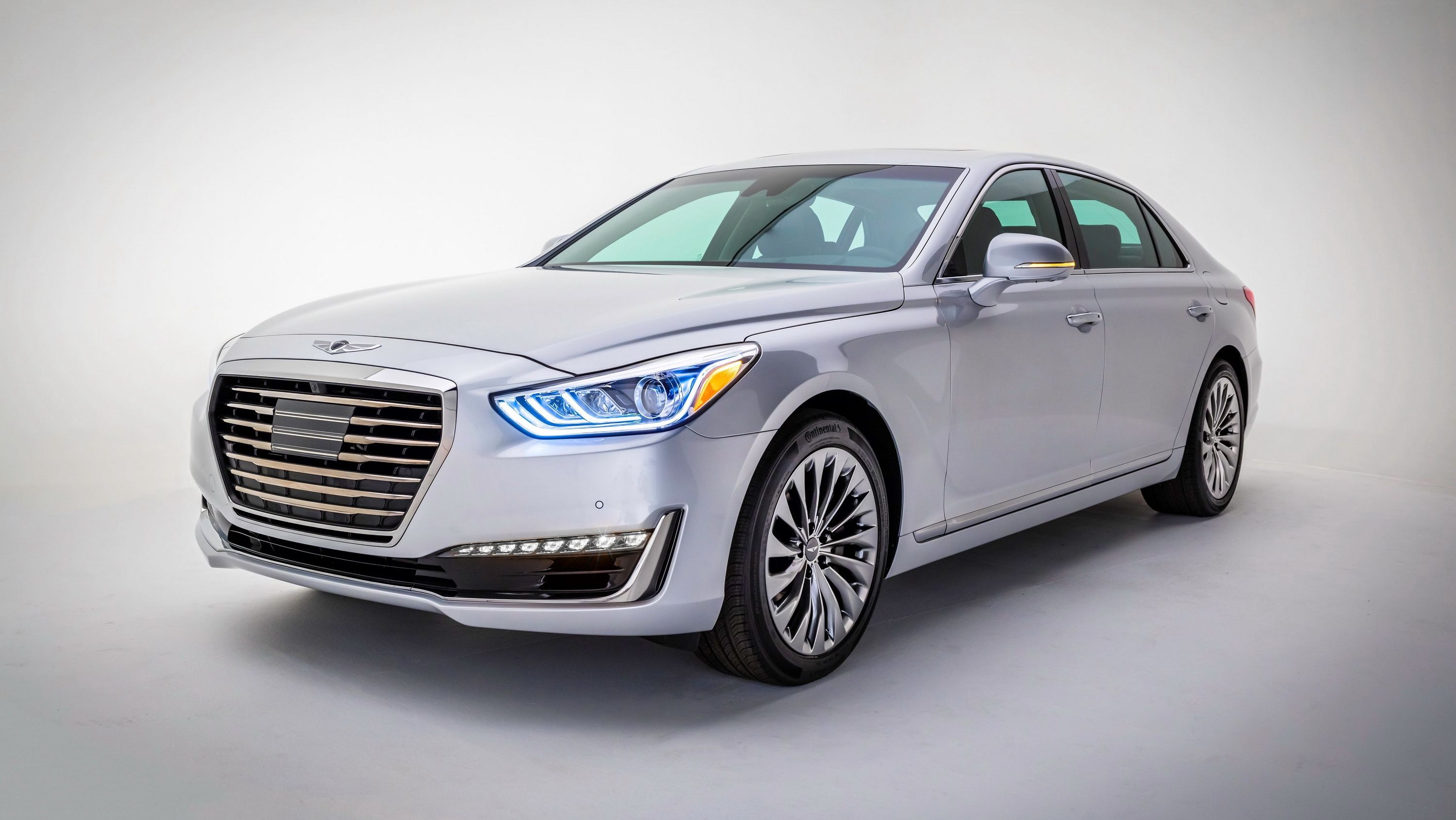It’s no secret that automakers are making the push toward the electrification of vehicles, and finally, plug-in hybrids->ke4486 are starting to make way in the eyes of the consumers. According to Edmunds, plug-in vehicle sales have jumped 40 percent in the first quarter of 2016 compared to the same period last year. With plug-ins garnering that kind of consumer interest, it’s no surprise that Hyundai’->ke201s luxurious Genesis brand is looking to add new plug-in variants to its lineup.
For a brand that’s just barely spread its wings, it might come off as being a quick move, but other luxury brands like Mercedes->ke187 and BMW->ke178 are already in the plug-in game. Dave Zuchowski, the CEO of Hyundai Motor America, says that the new plug-in hybrids will be an intermediate step before hydrogen fuel cell vehicles->ke4483 begin to make a big foothold in the market. When speaking of these new plug-in models, Zuchowski said, “Some of those will take the form of the Genesis side of our business. We believe alternative-propulsion engines are going to be really important – even more important in the luxury market than they are in the mainstream market.”
At this point, Hyundai and Genesis have remained quiet about what models will be the first to get a battery back and plug-in port. We know that the first vehicles will be on sale soon, and will be followed by a compact sedan and a set of crossovers by the time 2020 rolls around. The chances are that the brand won’t take that long to present a plug-in variant of at least the G80, if not the G90, and one of the future crossovers->ke288 will be another likely candidate.
Continue reading for the full story.
Why it matters
Hyundai is one of those brands that is expecting hydrogen-powered vehicles to take off, but I think plug-in vehicles offer more of a stepping stone between fuel-powered vehicles and electric vehicles like the Tesla Model 3 or the Nissan Leaf, for instance. You get some of the benefits of an electric vehicle without the need to worry about range. When it comes to hydrogen-powered vehicles, I don’t see the range anxiety being an issue if hydrogen becomes as readily available as petroleum-based fuels.
Either way, the expansion of plug-in models across all manufacturers is a big deal. Emissions regulations are tighter than ever, and to keep up in the market, Genesis will need to offer some plug-in options too. Now it’s just up to Hyundai and Genesis to get the plug-in models ready for production and into the showrooms. It might be a little risky for Genesis to start offering plug-in models so soon, but in such a competitive market, you’ve got to stay on top of your game.
Genesis G90
Read our full review on the Genesis G90 here.

